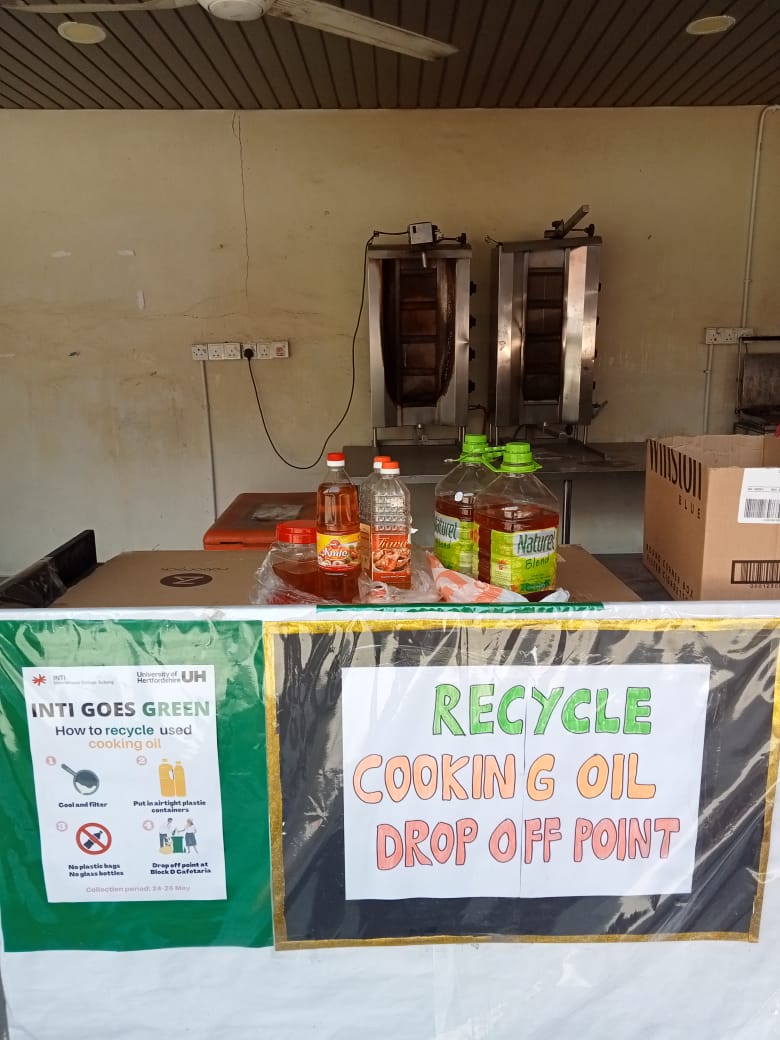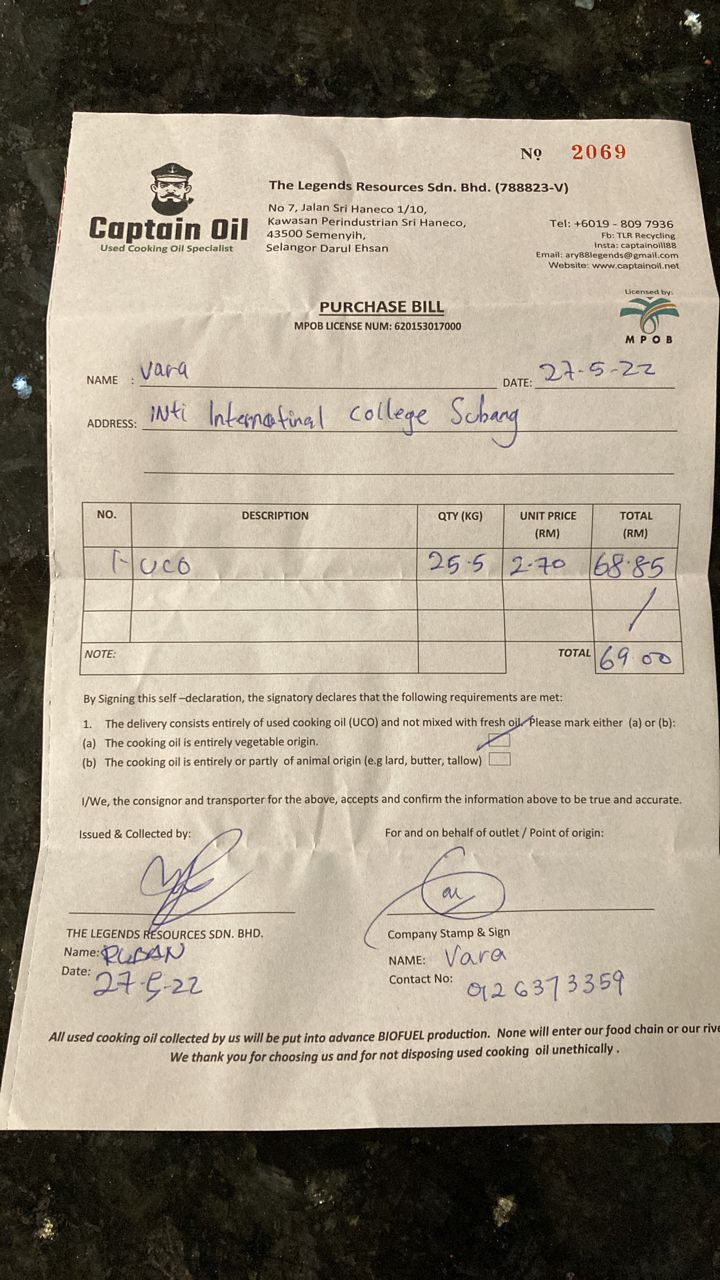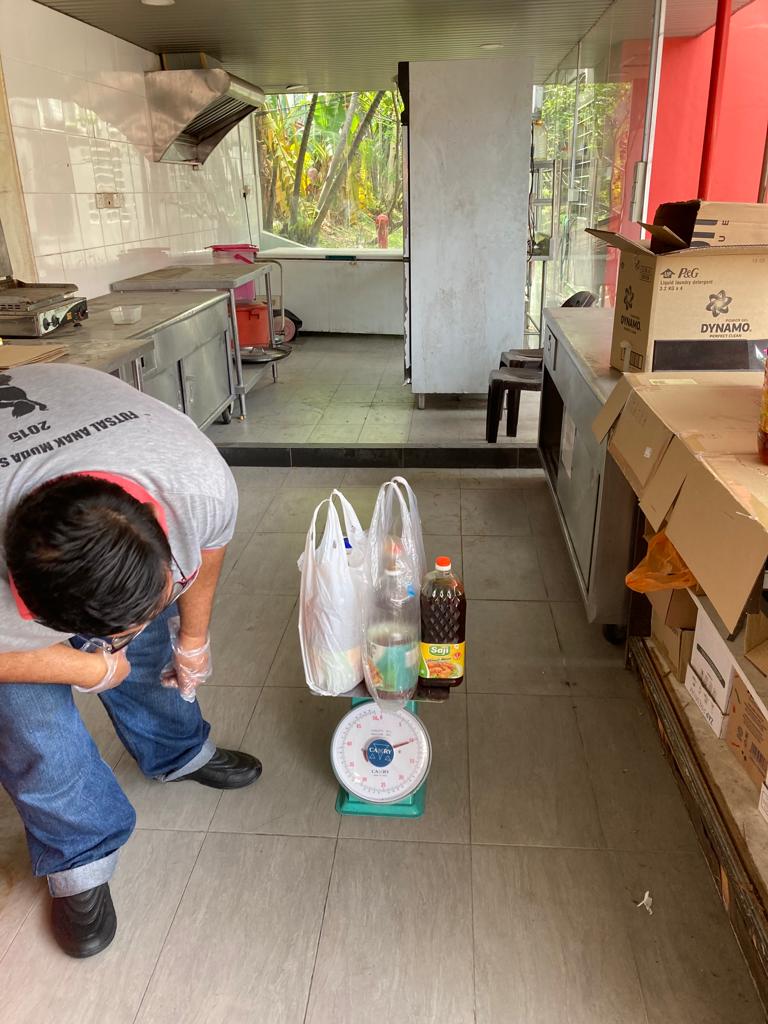Palm oil is the most widely used cooking oil in Malaysia. Malaysian palm oil’s long shelf life, neutral taste, less foamy, wider applications in food, abundant availability, and competitive price makes it a perfect choice for many Malaysian households[1]. Despite its usefulness, there is one aspect that has often been neglected by consumers – its disposal. It should be noted that proper disposal of cooking oil does not only apply to palm oil but to all types of cooking oils.
Did you know that in 2016, Malaysia’s Klang Municipal Council spent almost RM6 million to remove clogging caused by hardened cooking oil in drains? It was a necessary but costly mitigation action to prevent flooding that could have been easily avoided if everyone had disposed of their used cooking oil responsibly. Having said that, zero-waste movements are emerging and gaining momentum to combat issues like this as consumers, including Malaysians are becoming increasingly concerned about their choices and how they affect the environment.
The University of Hertfordshire (UH) faculty at INTI International College Subang decided it was about time to join forces to advocate the proper disposal of cooking oil while making a few extra ringgits at the same time.
Defining the significance of the INTI Goes Green project, Varaletchumi G V Sumathri, who is part of the corporate social responsibility (CSR) organizing committee, said it was a stepping-stone to encourage and educate staff and students on the importance of sustainability and how recycling cooking oil can help to save the planet.

The used cooking oil collection booth at INTI International College Subang was set up for the INTI Goes Green project.
“After preparing fried dishes for family and friends daily, pouring used cooking oil down the drain is assumed to be the norm in most households as it might seem to be the fastest and easiest solution to get rid of it. However, that’s the worst thing to do because grease can clog up kitchen pipes and local sewage systems!” exclaimed Vara who is also a lecturer at the UH faculty.
She said the amount of cooking oil people throw out may seem insignificant, but it does cost the local council a lot to clean clogs that can be avoided. This was a driving factor in coming up with a way to reduce clogged up drains that leads to flash floods.
According to Vara, the response for the project had exceeded expectations and they have collected 25.5kg of used cooking oil so far from the staff at INTI International College Subang within a short period of time. She elaborated, “Having only kickstarted the first leg of the project in April, we saw employees enthusiastically visiting the booth to dispose of used cooking oil from their homes into canisters that were already prepared by the team. The amount collected may seem small, but it is a great start to a greener future. Our staff always strive to lead students at INTI by example and this initiative is one of them.”

A total of RM69.00 was given by Capitan Oil in exchange for the used cooking oil contributed by the staff of INTI International College Subang for the INTI Goes Green corporate social responsibility project initiated by the University of Hertfordshire (UH) faculty.
Maizurah Kathu Abdul Hamid, a senior lecturer at the UH faculty who is also part of the project, said the initiative will be open to students in September. The oil collected is sold to Captain Oil, a company that is focused on recycling oil into biodiesel fuel.
“I believe that one reciprocates better if he or she understands the background of an initiative prior to engaging and committing themselves to it. Once our staff are aware of the importance of disposing cooking oil responsibly, they were motivated to get to the root cause of the flooding and river pollution, especially in the Klang Valley,” said Maizurah.
Biodiesel demand is increasing at this time, specifically from Europe as the European Union (EU) revised its Renewable Energy Directive (REDII) in 2018 which aims to increase renewables such as waste oil in energy production by 2030[2]. What this means is that demand for used oil collection has increased to produce the renewable aspect of the EU’s biodiesel, pushing the industry here to heighten efforts to source for your scraps.
Explaining further, Maizurah said, “Companies like Capitan Oil collects used cooking oil from households and restaurants which is then refined and transformed via a chemical reaction process using methanol and a catalyst into biodiesel. This biodiesel can then be used in place of traditional diesel in heating and to fuel transport.”
Made up of longstanding waste oil processing companies in the country, the Association of Used Cooking Oil Development Malaysia, which includes Capitan Oil, was formed in 2018 to better coordinate industry players towards regulation and industry accountability.
“There are several benefits of using biodiesel; the fuel produces fewer emissions of carbon dioxide and other pollutants reducing damage for the environment, and it improves the lifespan of motorised equipment. Plus, it prevents cooking oil from being disposed into drainage systems which, over time, can cause blockages,” she added.

A representative from Capitan Oil weighing the used cooking oil contributed by the staff of INTI International College Subang.
Maizurah said many companies are increasing the use of biodiesel in their fleet management as a way of improving corporate sustainability and reducing carbon footprint.
“Let’s do our part together for the environment. Some gestures take little-to-no effort in our daily lives. For example, we can even preserve cooking oil by freezing it. If it’s sealed tight, fresh, unused, or unopened, cooking oil can last up to two years in the freezer and about one year in the pantry. Remember, even the smallest amount of grease poured down the drain daily can have a cumulative and potentially harmful effect to your home and the environment. Think twice before acting,” she advised.
[1] https://mpoc.org.my/malaysian-palm-oil-industry/
[2] https://euagenda.eu/upload/publications/eprs-bri2021662619-en.pdf